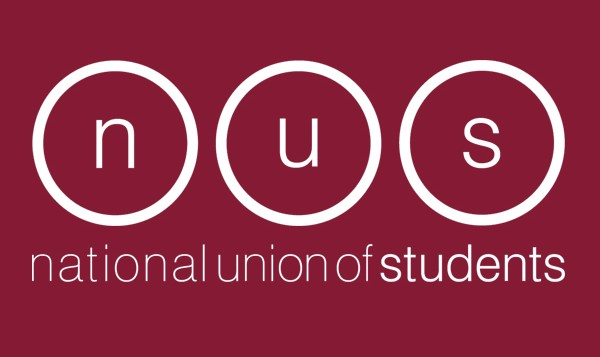The World According to UK’s National Union of Students
Some scripts are so perfect and so perfectly predictable that they write themselves. One such example cropped up this week.
Of course the National Union of Students (NUS) in the UK can be relied upon to be predictable, if nothing else. Far from representing students, the organisation some time ago fell back onto only representing students of the hardest of hard left views. They have spent recent years attempting to subvert the counter-extremism efforts of consecutive governments, whether Labour, coalition or Conservative. And only recently did they decide to do a number of events in conjunction with CAGE, the radical Islamist organisation with which ‘Jihad John’ (Mohammed Emwazi) was associated.
That said, the NUS does sometimes do things that even its supporters are embarrassed by. For instance last year the NUS refused to issue a motion condemning Islamic State (IS). To do so, the delegates argued, would be ‘Islamophobic’. Our Associate Director, Douglas Murray, among others, made hay with this in the national media at the time. After all, if condemning IS is ‘Islamophobic’ what is one to do? Roll over and let them chop everyone’s heads off? Or issue a call for mutual understanding to the head-choppers (perhaps with a dose of apology for colonialism by way of appeal to the slave-keeping colonialists of IS).
So far, so ridiculous. But this week the NUS showed that there is always further to go. For this week the group that would not condemn IS chose to pass a motion condemning and calling for a boycott of the world’s only Jewish state. It didn’t occur to them – or didn’t bother them – that this might be Judaeophobic. Such concerns are apparently only in one direction. But it did provide a moment of clarity.
The Israeli Prime Minister, Benjamin Netanyahu, was among those who pointed out the extraordinary double standards of the NUS. There are those who think he should not have spoken about this – that it is somehow beneath a Prime Minister. But it is not. Today BDS activity is a strategic threat to the State of Israel. The NUS may only be one group of far-left anti-Israel agitators, but they are having success with that campaign. Such success that in 2015 it almost seems normal – indeed predictable.
Of course the representative body for students in Britain wouldn’t even use words against IS. Of course they are willing to use not just words but actions such as boycotts against Israel. This is a sickness, a perversion of our time. But it should have a light shone on it, from the highest possible positions of power. Because it is only by shining a light on this modern mode of acceptable bigotry that the world has any chance at all of seeing the real darkness it contains.
FROM THE DIRECTOR’S DESK
Having just returned from a trip to the USA this week, I have been struck by the much greater attention being paid to foreign and international security policy by our American cousins at present than we see on the UK political scene.
Our General Election last month was a case in point. Foreign policy did not emerge in any of the televised debates and discussions, nor intrude upon the concerns of the public in the endless polls run during the campaign. It was as if threats such as Islamic State (IS), Russian expansionism and Iran’s nuclear programme were of interest neither to those who govern, nor the governed themselves. Perhaps this can be explained by the old adage that there a no votes to be won in foreign policy. Or just reflective of the inward looking nature of our political dialogue today when compared to Britain’s glorious and internationalist history.
The same – fortunately given the importance of these issues to our security and wellbeing – cannot be said about the forthcoming US presidential election. Putative candidates have been falling over themselves to declare that they are the candidate best placed to protect the US in an uncertain world. We even had a Republican contender, Senator Lindsey Graham, declare his bid this week by putting foreign policy at the front and centre of his campaign, saying “I have more experience with our national security than any other candidate in this race. That includes you, Hillary.” Whether true or not, that makes for an increasing contrast with our own politicians.
However, as I pointed out to the many American interlocutors I engaged with during my visit, it is one thing to speak about foreign policy, and quite another to actually practice it. We have heard lots from the Obama administration for years about its vision of the world. Yet it has done exceedingly little to create alliances or push policies that will actually turn visions into reality.
It is tempting to muse that given some of the views emanating from the White House, that may not have been a bad thing. But the fact remains that the world is an indisputably better place when it has strong and clear leadership from the USA. We should therefore hope not only for a profound debate on foreign policy during the presidential campaign, but also for a candidate – from whichever party – willing to once again occupy the ‘bully pulpit’ of the presidency.
Dr Alan Mendoza is Executive Director of The Henry Jackson Society
Follow Alan on Twitter: @AlanMendoza


